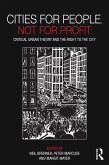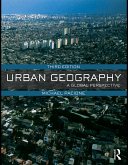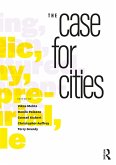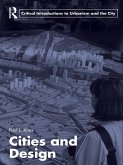The contributors provide cutting-edge analyses of contemporary urban restructuring, including the issues of neoliberalization, gentrification, colonization, "creative" cities, architecture and political power, sub-prime mortgage foreclosures and the ongoing struggles of "right to the city" movements. At the same time, the book explores the diverse interpretive frameworks - critical and otherwise - that are currently being used in academic discourse, in political struggles, and in everyday life to decipher contemporary urban transformations and contestations. The slogan, "cities for people, not for profit," sets into stark relief what the contributors view as a central political question involved in efforts, at once theoretical and practical, to address the global urban crises of our time.
Drawing upon European and North American scholarship in sociology, politics, geography, urban planning and urban design, the book provides useful insights and perspectives for citizens, activists and intellectuals interested in exploring alternatives to contemporary forms of capitalist urbanization.
Dieser Download kann aus rechtlichen Gründen nur mit Rechnungsadresse in A, B, BG, CY, CZ, D, DK, EW, E, FIN, F, GR, HR, H, IRL, I, LT, L, LR, M, NL, PL, P, R, S, SLO, SK ausgeliefert werden.
'The contributors provide analyses of contemporary urban restructuring, including the issues of neoliberalization, gentrification, colonization, "creative" cities, architecture and political power, subprime mortgage foreclosures and the ongoing struggles of "right to the city" movements. The book also explores the diverse interpretive frameworks - critical and otherwise - that are currently being used in academic discourse, in political struggles, and in everyday life to decipher contemporary urban transformations and contestations.' - Lonaard Magazine, Issue 12, Vol. 2, November 2012
"Cities for people, not for profits came out at a time when such an edition was needed for critical urban theory. The chapters provide a holistic approach discussing both, theory and practise, looking at it on a global scale, putting emphasis on the housing market where injustice is most evident and providing an outlook on what is needed for overcoming the recent (urban) crises. The book is highly recommended to those seeking to get started with critical urban theory, looking for an adequate update on theories formulated in the 1970s and wanting to know how desirable social urbanization could be reached. Cities for people, not for profit is a book coming out just at the right time."- Johannes Riegler, Austrian Institute of Technology









